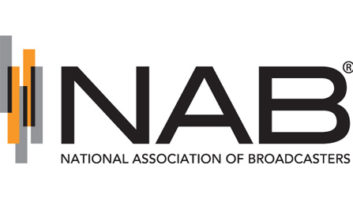Noncommercial applicants to avoid auctions
Sep 1, 2001 12:00 PM, By Harry Martin
Concluding that �inartful drafting is not the same as ambiguity,� the U.S. Court of Appeals for the District of Columbia Circuit found in favor of National Public Radio in an appeal from the Commission’s prior determination that noncommercial educational (NCE) stations would be required to take part in an auction if they decided to file for non-reserved (commercial) frequencies.
The Commission, in response to questions previously raised by NPR, conducted a limited rulemaking and issued its determination that its view of the Balanced Budget Act did not exempt NCE stations from auctions involving commercial allocations. The Commission took the position that if an NCE applicant filed for a commercial channel, then it would be subject to an auction like any other applicant. The Court’s conclusion was that the language in the Balanced Budget Act was clear enough that NCE applicants were not required to submit to an auction.
The Court’s decision places a cloud over the FCC’s planned December FM channel auctions. The Commission most likely will come up with a hybrid point system to cover comparisons among NCE and commercial applicants. However, a full-blown rulemaking will be required to effect such a plan. This time-consuming process will be completed next year at the earliest.
Another alternative is to ask Congress for a legislative remedy. The general thought is that the Hill might not be sympathetic to NPR since NPR’s position could cost the government auction fees.
This raises a question as to whether the December FM auctions will go forward as scheduled. If auction applications are invited in September as planned, the FCC would have to postpone the bidding for any channel that attracts even one NCE applicant.
EEO rules down but not out
The U.S. Court of Appeals in Washington has struck down the FCC’s 2000 version of the EEO rules for a second time. In 1998, the Court found an earlier version of the EEO rules unconstitutional, stating that those rules pressured stations to grant preferences to minority applicants by requiring them to compare the percentages of minorities on their staffs with the local labor force.
In 2000 the FCC adopted completely new EEO rules. The new rules offered two options. Option A was a complex set of recruitment requirements, which did not specifically reference minorities. Option B allowed licensees to design their own recruitment plans, but required record keeping on minority applicants and hires.
In January of this year, the U.S. Court of Appeals found Option B unconstitutional because it focused more on results than efforts by requiring stations to report a job applicant’s race. The Court held Option B was not narrowly tailored to further a compelling governmental interest in preventing discrimination and was, therefore, unconstitutional. The Court also stated that it was impossible to sever Option B from Option A in order to allow Option A to remain in place, stating that the reason the FCC adopted Option B was too intertwined with that for Option A.
In February, in response, FCC Chairman Powell, with support from a majority of the FCC Commissioners, asked the Court as a whole, i.e., a panel of all judges on the Court rather than the normal three-judge panel, to reconsider the decision and the Court agreed. On reconsideration, however, the Court again held the EEO rules unconstitutional.
The only option for further appeal would be the U.S. Supreme Court. The FCC has not indicated an interest in fighting that battle. Instead, Chairman Powell has stated publicly he would like the other Commissioners to join him in proposing rules more likely to be found constitutional. A new proposal could surface by early next year.
Shortly after the first decision, the FCC suspended its EEO rules while awaiting the Court’s reconsideration. Assuming no U.S. Supreme Court appeal is taken, the EEO rules will officially terminate when the U.S. Appeals Court’s second decision becomes final. In light of the possibility of new EEO rules, however, it may be advisable for stations not to dismantle their EEO record-keeping systems. While no penalties could be imposed for suspending record-keeping during the time no rules are in effect, it may be administratively more difficult to restart than to keep systems in place pending the outcome of any future deliberations.
Harry Martin is an attorney with Fletcher, Heald & Hildreth, PLC., Arlington, VA. E-mail[email protected].
Dateline
Annual regulatory fees are due for commercial radio stations between September 10 to 21, 2001. Fee payments are made to Mellon Bank in Pittsburgh and must be accompanied by a signed FCC Form 159.
October 1 is the filing deadline for biennial ownership reports for stations in the following states and territories: Alaska, Florida, Guam, Hawaii, Iowa, Mariannas, Oregon, Puerto Rico, Samoa and Virgin Islands.
October 10 is the deadline for placing July through September issues/programs lists in stations’ public files.











